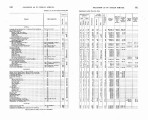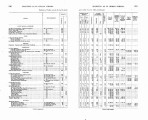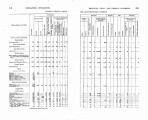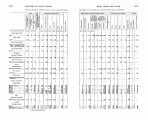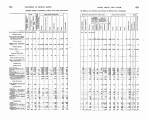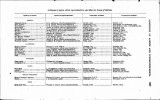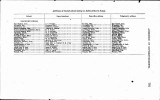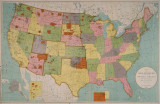| OCR Text |
Show 420 REPORT OF SUPERINTENDENT OF INDIAN SCHOOLS. advancing oustoms, manners and civilization of the invading races and the customs, tribal laws, and mannmof the original holders of the soil, there should be instslled at thisgreat exposition of eace the first working exhibit of Indian schools and Indian instruction. It is particnirly fittin that in thls great exposition of processes there should be maintained a working ex%ibit of the Indian schools which shall demon-strate the methodsand rocesses m use for the trainingof Indian children in those arts and crafts which help tgem to hecome useful members of mciety. It can not fail to be of the utmost benefit in impressing the people of this country with a sense of the obligation which they owe the wards of the nation in generously providing every reasonable means for the necessary industrial training to make them self-supporting, self-respecting, and law-abiding c~tizens. I congratulate the snperintendent. of the Indian schools and the teachers and instructors within such schools on the very intelligent and masterful way in which yon have presented the work of yonr Department, and extend to you the greeting and thanks of the exposition, not only for your presence here to-day, but also forthe interesting addition to our educational exhlbita. 0reeting.-.Dr. Calvin M. Woodward, director of manual training school, Washing-ton University, St. Louis, Ma.-I am on yonr pmgm as the director of the man-ual training school of this university, therefore it a my great pleasure to meet yon this morninf,., I welcome yon on behalf of this university to this mom and this buildins (w lch w a part of the Washi ton University) and to all these grand buildings belonging to the ~ashington%iversity, and I felicitate yon on yonr o portunity of being here this morning, and congratulate myself that I am able, for tie first time, to lift u my voice in one of the departments of Washington Univer-sity, which, after the gir is over, will be my home. Two years ago I met you in Detmit. I am delighted to meet on welcome yon to this new life and to the splendid opportunities okredsg:~ %:; and through the coming week. I congratulate on n on the progress you havemade in two years. I have watched the growth of d e 1nlian education, and I have seen with satisfaction how yon have been leading on successfully a race to a higher stand-ard of civilization. It is a peat work; it is a noble work; and I am well aware that many of you are devoting yourselves to that work in a sort of miesionary spirit, and I honor yon for your devotion, enthusiasm, and patience; becailse I know this work requires infinite patience as well as infinite devotion. We want to give the Indian yonthof this country the best we have to give. This universe has its doors wide open to every youth who intends to be somethin in the future. Start him well and thoroughly in the rudiments. Do not try to buiyd the top story of your honm until after the fonndation is laid. Build the fonndation well and the bmlding will grow up, just as a well-planted'tree will grow to its final and magnificent growth. I welcome you to this mom, which is a pari of the Washington University, and with this word of greeting I bid you good morning. Qreeting.-Dr. F. Louis Soldan, superintendent of instruction, public schools, St. 120uis, Ma.-There is a vague fitness in the school surroundings of the present day and the words of welcome which some of the representatives of the city of St. Louis have been invited to extend to you. Within the sphere of Indian education-within the sphere of Indian interest-this is historic ground. A few miles from here runs the Mississippi River, as it did at the time of Indian occupancy. Its waters tell the same story, and its name, given to it by the first inhabitsilts of this lace, is Indian and tells us that before the white man came the Indians had owneBthat river and named it. A few miles north the Missouri tells the same story. I welcome you to this city of St. Louis and feel like saying a few words of grateful reco ition of what the education of the Indian race has done for us. It has emphs, sizeybefore the white schools of this city, and for all those of the country, the prin-eiple'that a. man's or a woman's education-true education-must proceed along the line of his or her life work. Indian edncation, the trainin of the yoimng men and women of that race has pointed clearly to the importance ofthe manner of training and its importanck in adjusting school education to the paths of life they follow. We all are aware of the great difficulties that beset yonr task. In all other schools the school is hut a fractional part of edncation, but in the edncation of our Indian boys and girls you do more than aimply teach the elements of reading, writing, and arithmetic. You go beyond your pupils to the Indian home, where yonr help and influence is amazing. I wish to welcome yon on behalf of the 80,000 children of this city. They appre-ciate and feel what is being done for the Indian; they feel an interest in the labors of the teachers. I welcome you on behalf of our citizens, who feel that a national pledge has been given to this race, which you in your schools are nobly redeeming. Show me the patriotic citizen and I will show you the friend of Indian edncation |






















































































































































































































